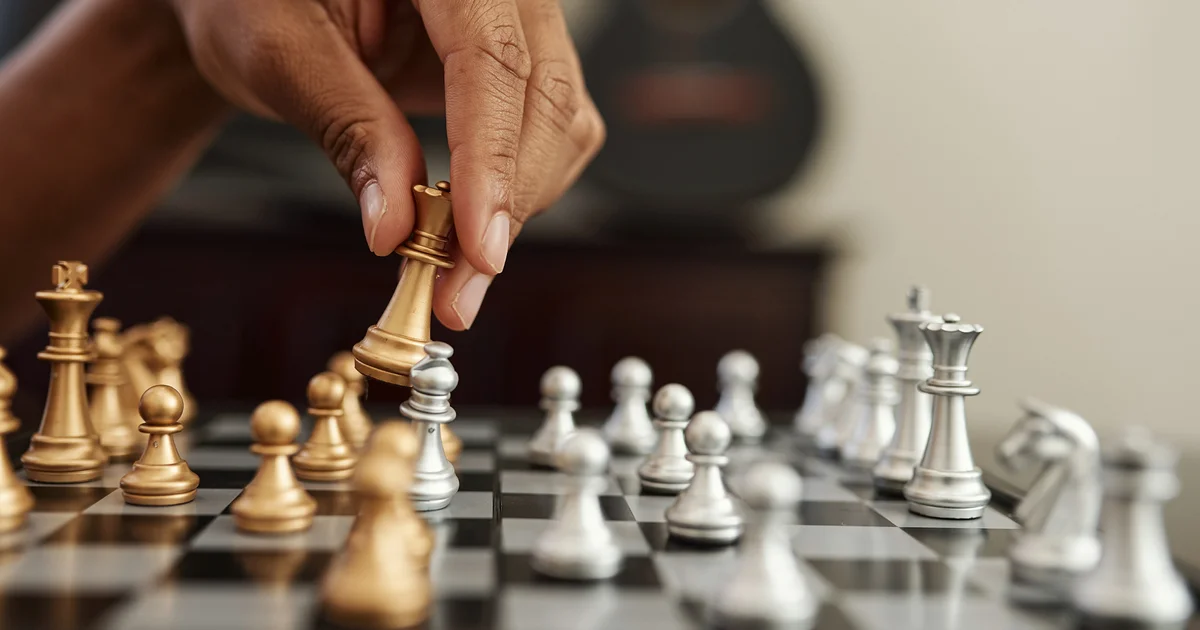Chess is not just a game—it’s a masterclass in strategy, foresight, and decision-making. While most people associate it with the chessboard, the principles that guide chess can be applied to nearly every aspect of life. Whether in business, personal relationships, or navigating daily challenges, the strategic mindset honed through chess can offer valuable insights.
In this post, we’ll explore how chess strategies—openings, middle game tactics, endgame precision, and the importance of foresight and patience—can help you make better decisions in real life.
Opening Chess Moves: Setting the Stage for Success
In chess, the opening phase is critical—how you position your pieces early on shapes the rest of the game. Similarly, in life, the initial steps you take when starting a new project, job, or relationship are crucial to long-term success. The key to a strong start involves:
- Understanding the position: Like assessing your board in chess, take stock of your resources, challenges, and goals at the outset of any endeavour.
- Playing to your strengths: In chess, certain openings highlight your style of play—whether defensive or aggressive. Similarly, leverage your unique strengths to gain an early advantage in real-life scenarios.
- Planning for flexibility: While chess openings can be planned, they often require adjustments based on the opponent’s moves. Likewise, be prepared to pivot as new information or challenges arise in life.
The Middle Game: Tactics and Maneuvering
The middle game in chess is where most of the action happens. Players maneuver their pieces, create threats, and exploit weaknesses in their opponent’s position. This mirrors the complexities of mid-life situations, such as managing a growing business or navigating relationships. To thrive in the middle game:

- Adaptability: Just as a chess player adapts to an opponent’s moves, be ready to adjust your strategies as circumstances evolve.
- Create threats: In business or negotiations, position yourself so that others must respond to your needs, just as a chess player forces their opponent to address their threats.
- Balance risks and rewards: Chess players often calculate the risk of sacrificing material for a larger strategic gain. In life, consider both the potential rewards and consequences before making a move.
The Endgame: Sealing the Deal
The endgame in chess is where precision and planning come to fruition. With fewer pieces on the board, every move is crucial to securing victory. In real life, this phase parallels situations like closing a business deal, finalizing a project, or making important life decisions. To succeed:
- Focus on the long-term goal: Whether you’re closing a deal or achieving personal milestones, keep your end goal in sight and plan each step carefully.
- Efficiency and execution: In the endgame, there’s little room for mistakes. Be efficient in executing your plans and take calculated actions to achieve your objectives.
- Know when to attack and when to defend: Much like a chess endgame, sometimes the best approach is to wait for the right opportunity rather than acting hastily. Recognise when it’s time to defend your position and when to seize the moment.
The Importance of Foresight: Thinking Ahead
One of the most powerful aspects of chess is the ability to think several moves ahead. Top players anticipate their opponent’s moves and prepare accordingly, which is equally valuable in life. Foresight involves:
- Setting clear goals: Start by defining your objectives and work backward to ensure your decisions align with your long-term vision.
- Evaluating possible outcomes: Just as a chess player analyses various lines of play, assess the potential consequences of your decisions before taking action.
- Mitigating risks: Chess players often plan several moves ahead to anticipate threats and avoid traps. In life, this foresight can help you avoid costly mistakes by preparing for potential risks.
The Power of Patience: Avoiding Rash Decisions
In chess, impulsive moves often lead to blunders. Similarly, in real life, making rash decisions can lead to undesirable outcomes. Patience is key, and sometimes the best strategy is to wait for the right moment. To embrace patience:
- Take your time: Evaluate your options carefully and avoid rushing into decisions that may have long-term consequences.
- Embrace calculated risk-taking: While patience is crucial, there are times when quick action is necessary. Just like in blitz chess, sometimes the best move is the one that catches your opponent off guard.
Learn from Mistakes: Embracing the Lessons of Chess
In every game of chess, mistakes happen. However, the ability to learn from those mistakes and adjust your strategy is what leads to improvement. The same principle applies in life. If things don’t go as planned, reflect on what went wrong, adjust your approach, and move forward with renewed clarity. In chess, this often involves conducting a post-mortem analysis, where players review their moves to understand their mistakes and refine their strategies.
Conclusion
Just like chess, life is a game of strategy. The choices you make today can have far-reaching consequences tomorrow. By applying the core principles of chess—opening moves, tactical play, endgame precision, foresight, and patience—you can approach challenges with more confidence and clarity. Whether you’re working on your career, managing relationships, or navigating everyday decisions, the strategic mindset developed through chess can help guide your journey toward success.


Recent Comments